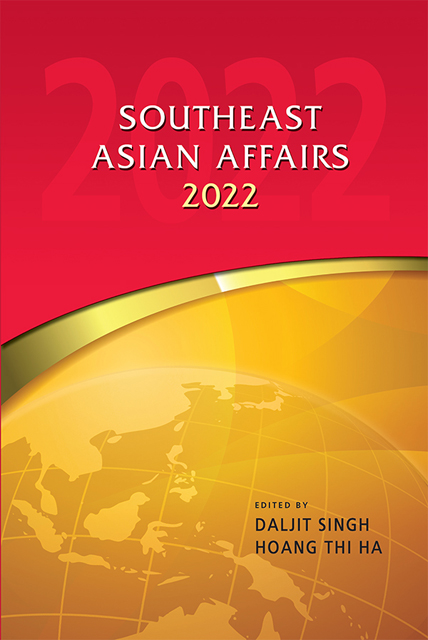Biden’s First Year: Coping with Decline as China Rises in Southeast Asia
Published online by Cambridge University Press: 01 September 2023
Summary
The remarkable negative shift in American policy against China dominates US policy in Southeast Asia and the broader Indo-Pacific region, one of two top policy arenas of acute US rivalry with China. The other is competition for dominance in the high-technology industries determining which country will be the world’s economic and military leader. In both critical policy areas, the United States seeks to counter Chinese challenges and prevent feared Chinese dominance and its negative impact on American security and well-being.
President Joseph Biden entered office in January 2021 with clear priorities focused on countering the pandemic that ravaged the country amid the national government’s mismanagement, reviving and making more competitive the stalled economy in ways beneficial to American workers, reducing partisan divides that have caused government gridlock and mass protests that undermine the democratic process, and protecting minority rights against unjust law enforcement. Foreign policy was secondary. There was a strong emphasis on a return to close cooperation with allies and partners; cooperation with international groups seeking multilateral solutions to salient global issues involving public health, climate change and nuclear non-proliferation; and a priority on Asia as the most important region for American security, economic and political interests.
President Biden and senior members of his administration came late in endorsing the dramatic negative turn in US policy towards China carried out by senior leaders of the Trump administration and bipartisan majorities in Congress beginning with the administration’s National Security Strategy in December 2017. Candidate Biden disparaged China’s ability to challenge US power. By early 2021, however, the president and senior aides repeatedly warned against major dangers posed by China’s challenges. Biden stressed that China had reached a stage, through predatory economic practices, where it challenged the United States for leadership in high-technology industries that provided the foundation for US economic and military leadership, thereby threatening US domination by China. Meanwhile, the president’s countering of Chinese expansionism in Asia showed repeatedly in his meetings with key allies and partners, giving high importance to the four-party Quad grouping involving Australia, India, Japan and the United States to advance US interests in the region in contrast to China’s ambitions for dominance and control.
- Type
- Chapter
- Information
- Southeast Asian Affairs 2022 , pp. 42 - 59Publisher: ISEAS–Yusof Ishak InstituteFirst published in: 2023



